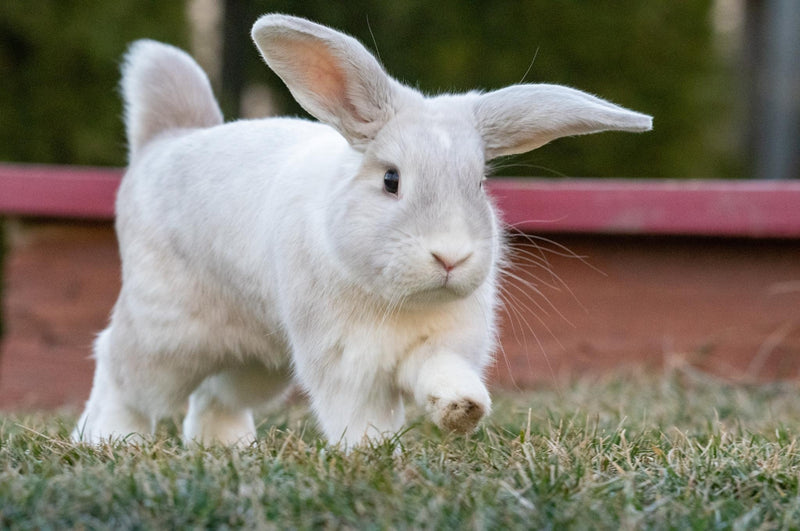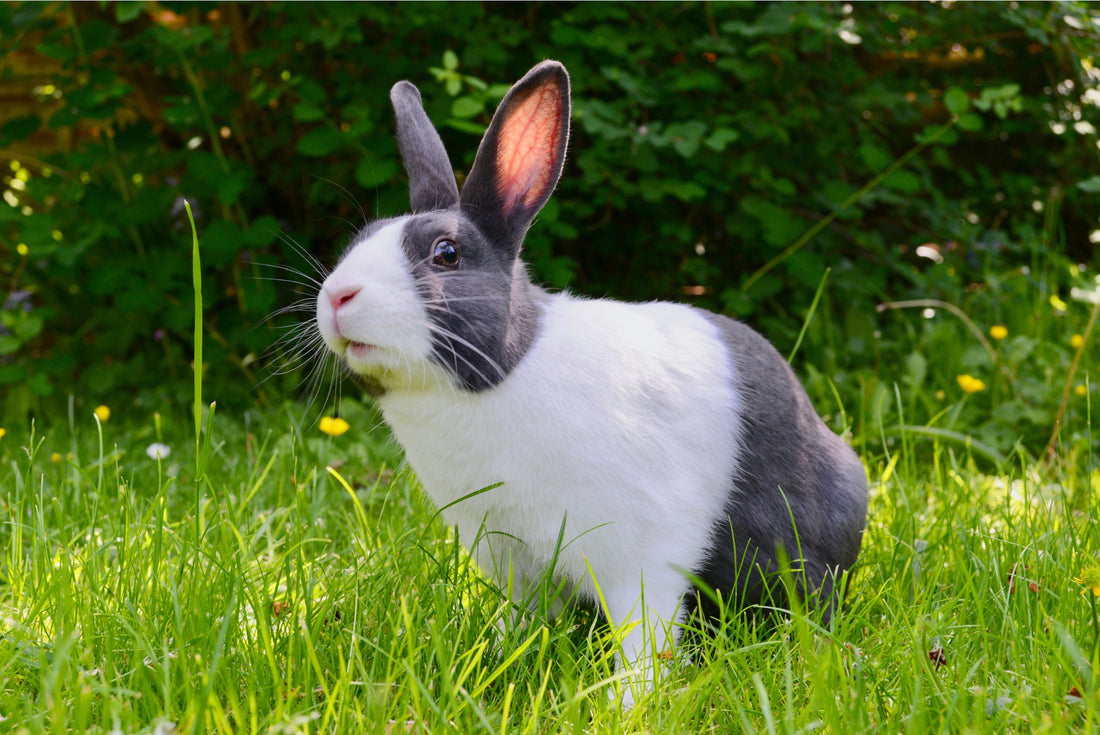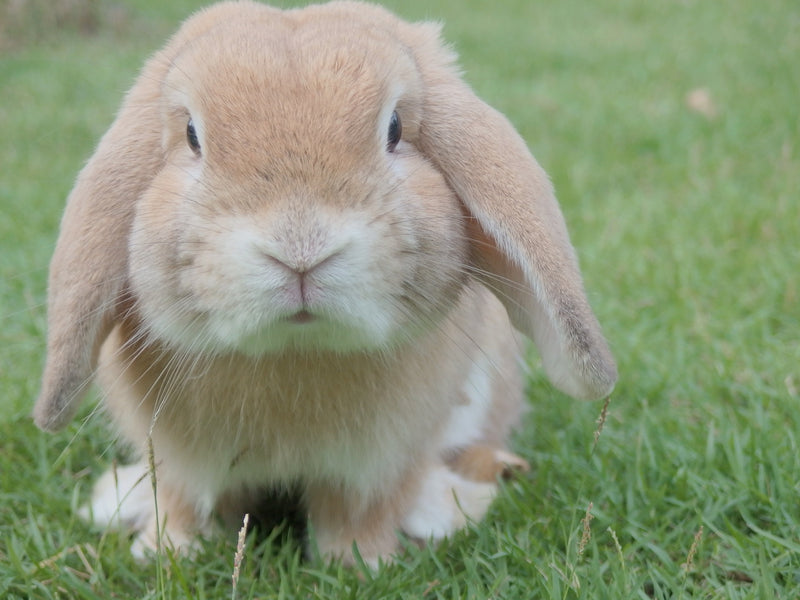
- 29 March 2022
- rabbits

Rabbit feeding hay
The key to a happy and healthy rabbit inside and out, begins with your furry friend’s diet.
See, smell and let your bunny taste the difference with our delicious, nutritious Timothy Hay.
Never run out of your pet's favourite hay again and save 5% on each order.
Sign up for a subscription today and get 30% off your first order just use code HAYSUBSCRIBE30 at Checkout. Pause, change or cancel any time.
Good quality feeding hay should make up 85-95% of your rabbit’s daily diet, which means the average domestic pet should be eating around 1kg of hay every week.
Eating enough hay is important as it helps rabbits maintain both a healthy gut function and healthy teeth, as well as preventing obesity which can lead to significant health problems. It can be a challenge to encourage your bunny to choose the healthy hay option, especially if he or she is used to less nutritious treats.
High in fibre and low in sugar, our high quality homegrown Timothy Hay is ideal for your rabbit as it’s not only packed with naturally tasty goodness but we also process it to increase purity and to offer stem lengths that take time to chew and prevent boredom, just as nature intended! Small pets across the country certainly give our natural varieties the ‘paws up’!
After dogs and cats, rabbits are the third most popular pet in the UK, with 2% of the population owning around 1 million of our furry friends.
However a rabbit’s anatomy and digestive system is very different to that of a cat or dog, so rabbit lovers must be careful with the type and quantity of food provided to ensure optimum health and wellbeing of their pet rabbits.

It should be:
Timothy hay is a high-fibre grass hay made from Phleum pratense, a perennial grass native to Europe. It’s considered a staple in
the diet of rabbits and other small herbivores due to its nutritional profile
and dental benefits.
Rabbits require a diet high in fibre to support healthy digestion and to prevent gastrointestinal stasis. Timothy hay also helps wear down their constantly growing teeth, preventing dental issues.
Hay should make up about 80–90% of a rabbit’s diet. Provide an unlimited supply of fresh hay daily—rabbits should always have access to it.
Yes, but young rabbits (under 7 months) may benefit from alfalfa hay due to its higher calcium and protein. Once they mature, transition them to Timothy hay for long-term health.
Yes, mixing hays (like orchard grass or meadow hay) can encourage picky eaters and provide dietary variety. However, Timothy hay should remain the primary source unless advised otherwise by a vet.
Try different cuts, brands, or mix in small amounts of aromatic herbs (like mint or dandelion). Ensure the hay is fresh and not stored in airtight containers that can cause dampness or mould.
Keep it in a breathable container (like a cardboard box or cloth bag) away from
direct sunlight, moisture, and extreme temperatures to maintain freshness.
Yes, some people are sensitive to the dust or pollen. If you have hay allergies, wear gloves and a mask when handling it, or consider low-dust or compressed hay products.
Absolutely. It's ideal for guinea pigs, chinchillas, and degus as well. Always consult species-specific guidelines for proper dietary needs.
Need more advice? We have lots of useful information to help you take the best care of your rabbit.